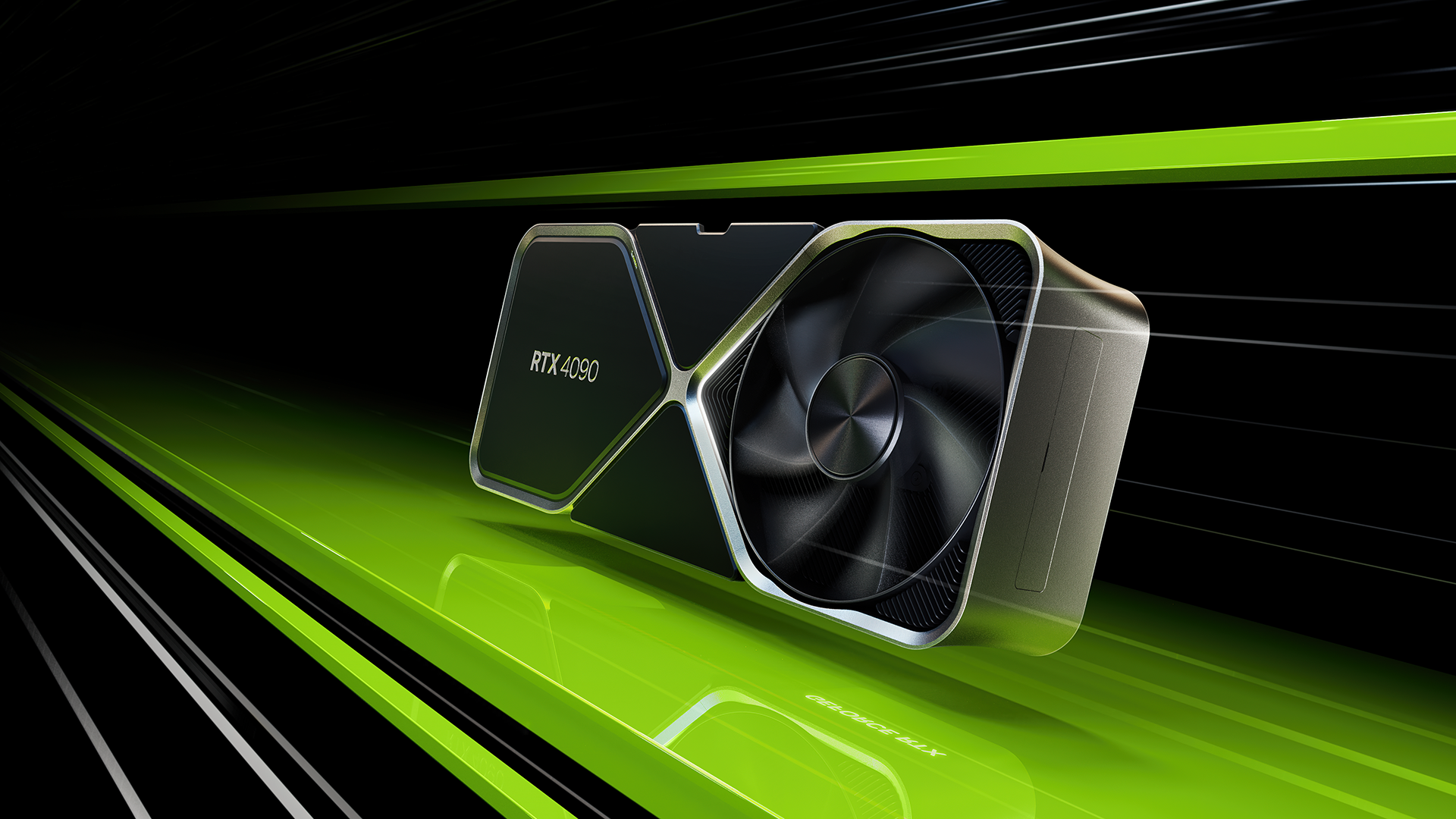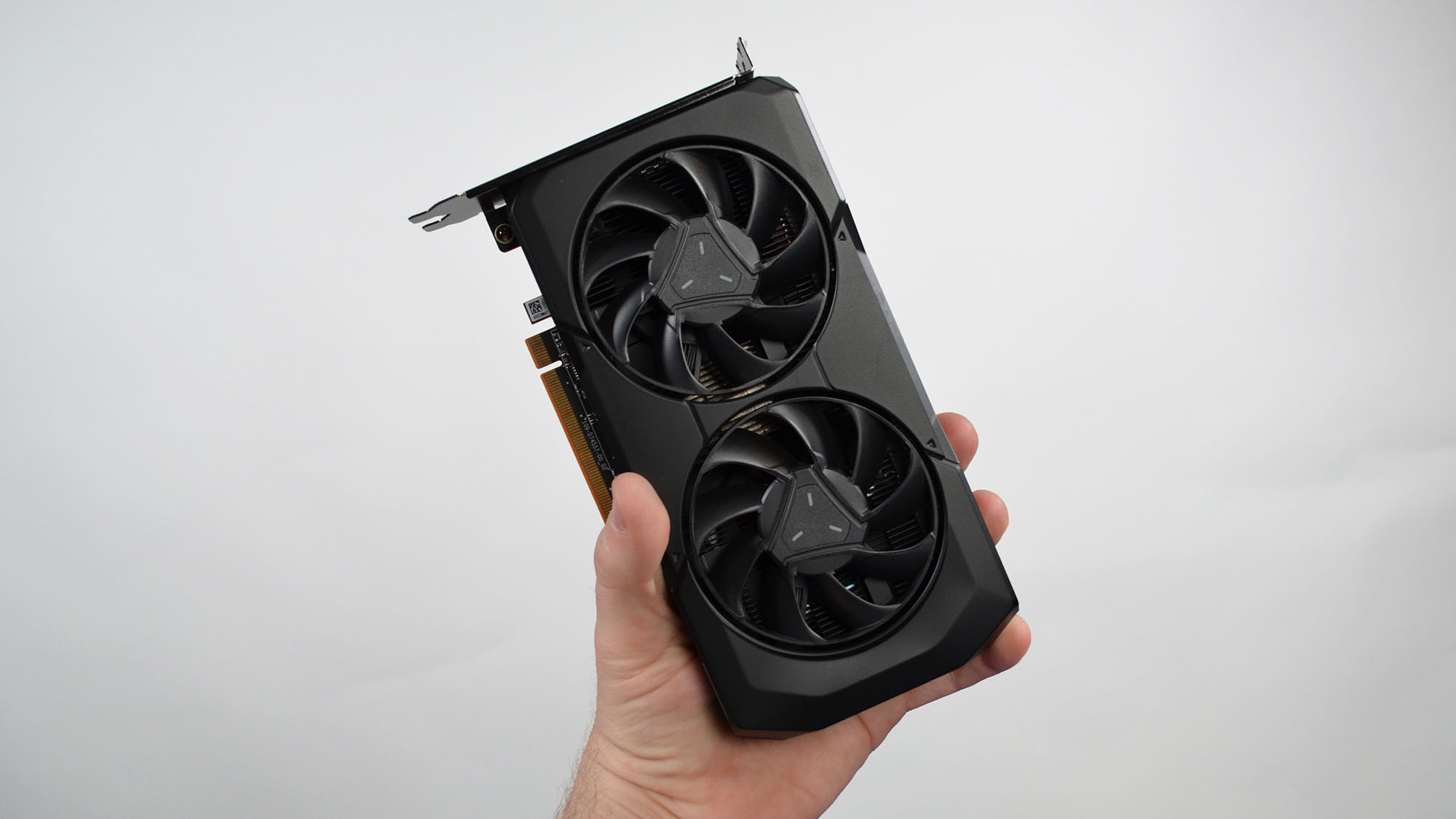Nvidia rumored to halt RTX 4000 production – is a perfect storm coming for GPU price rises?
Or is this a golden opportunity for AMD to step in and take GPU market share?

Nvidia has pretty much stopped the assembly lines rolling with production of RTX 4000 graphics cards, a well-known YouTube leaker reckons.
In the latest video from Moore’s Law is Dead (MLID), the leaker tells us that Nvidia has all but halted Lovelace production (apply salt here, and plenty of the stuff).
Against a backdrop of chatter from some sources in retail claiming Nvidia is supplying them with very few high-end Lovelace graphics cards these days (RTX 4080 and 4090 models), MLID notes that RTX 4000 production is now down to the bare minimum.
One source from Nvidia tells MLID that technically a production line is being kept open for each Lovelace SKU (model), due to contractual obligations with chipmaker TSMC. However, the source adds that RTX 4000 production is “essentially hibernating” and that all manufacturing focus, or as much of it as possible, has been shifted to Hopper GPUs.
Meaning heavyweight graphics cards for use in AI applications, which will come as no surprise to anyone watching the GPU industry of late.
There has been plenty of buzz about how GPUs for AI are becoming a massive thing, which in turn is no shock, given the huge drive to advance with artificial intelligence right now, from Microsoft (Bing AI), Google (Bard), and, well, pretty much every tech company going in one way or another.
Analysis: Peering through the GPU gloom to find some hopeful shafts of light
As ever with rumors, we have to be careful about taking this without the necessary skepticism that any chatter from insider sources should be regarded with. But there are some good reasons to believe there’s some truth here, not least of which is that MLID appears to have a few separate sources claiming this (and one apparently from inside Nvidia itself).
Get daily insight, inspiration and deals in your inbox
Sign up for breaking news, reviews, opinion, top tech deals, and more.
For starters, this kind of thing isn’t without precedent. As MLID points out, Ampere (Nvidia's previous generation of GPUs) production was also curtailed (late in 2021), albeit very briefly.
Secondly, as mentioned, there’s already plenty of buzz around demand for beefy pro graphics cards for AI use, and it makes total sense that Nvidia would want to capitalize on this – after all, there are much bigger profits to be had in that area than with GeForce gaming GPUs.
Indeed, only yesterday we saw another report on the rise in AI tools and chatbots leading to businesses snapping up GeForce graphics cards for their own non-gaming purposes – in a similar vein to how crypto-mining damaged GPU availability for PC gamers in the past.
On top of that, all this is happening against a background of previous (recent) leakage from MLID, saying that while GPUs have been falling considerably in price of late – due to depressed demand, thanks to high pricing for current-gen models, and the cost-of-living crisis – all signs point to the market now having bottomed out.
In other words, GPU prices are starting to creep back up, with retailer sources observing that lower price tags really stoked sales momentum last month, and more and more graphics cards were being sold as July rolled on. As a result, prices are heading back up for some GPUs, like AMD’s RX 7900 models, although there may still be room for price drops with some Lovelace cards, we were told, like the RTX 4070 and 4080.
That’s the crux, though, right here – that won’t be the case if Nvidia is stopping production of all Lovelace GPUs. In short, we are potentially looking at a perfect storm to push GPU pricing back up (maybe by a considerable amount, or that’s the worry).
While this paints a gloomy picture for the graphics card market and gamers in general, all is not necessarily lost – there’s potential for some mitigating factors here.
On the Nvidia side, the possible shaft of sunlight cutting through the dark clouds is that one of MLID’s sources reckons Team Green has already produced a lot of Lovelace GPUs anyway – maybe a year’s worth. And with sales being slow this year, it's possible that there’s plenty of RTX 4000 models to go round, at least for a good amount of time, even if production has been just about halted.
What runs against that, though, is the chatter about RTX 4080 and 4090 supply getting thinner on the ground. (That said, supply for the lower-end of the market, the RTX 4060 and 4070, is more important to the average gamer, of course).

The second potential bright spot could come from AMD. We know that AMD is about to launch some new RDNA 3 GPUs (rumor has it we’re getting an RX 7700 and 7800, or a pair of graphics cards along these mid-to-upper range lines, at Gamescom later this month).
Speculation points to the possibility that AMD might go quite aggressive with pricing for the new models, and Team Red has a ton of Navi 32 supply (the chips used in the new cards). The hopeful scenario, then, is AMD uses this as an opportunity to take back some GPU turf in the mid-range, and attacks Nvidia with a large-scale launch of well-priced graphics cards.
That would be great for gamers – but as MLID’s source that imparted the above information points out, it doesn’t necessarily make good business sense. The GPU market is down, after all – which is why Nvidia is supposedly cutting back its GeForce line-up – so AMD would be making a big move in what’s effectively a strong headwind.
Also, Team Red has very much signaled its intention to sell AI GPUs to China (while complying with US export restrictions), and we come back to that point again – the AI market looks just too choice a place for profits right now.
Ultimately, we could go back and forth with this one, but there is at least some hope that AMD may want to take a rare opportunity to claw some gaming GPU market share away from Nvidia – if businesses don’t buy too many of those GeForce graphics cards to use for AI purposes, that is.
Darren is a freelancer writing news and features for TechRadar (and occasionally T3) across a broad range of computing topics including CPUs, GPUs, various other hardware, VPNs, antivirus and more. He has written about tech for the best part of three decades, and writes books in his spare time (his debut novel - 'I Know What You Did Last Supper' - was published by Hachette UK in 2013).